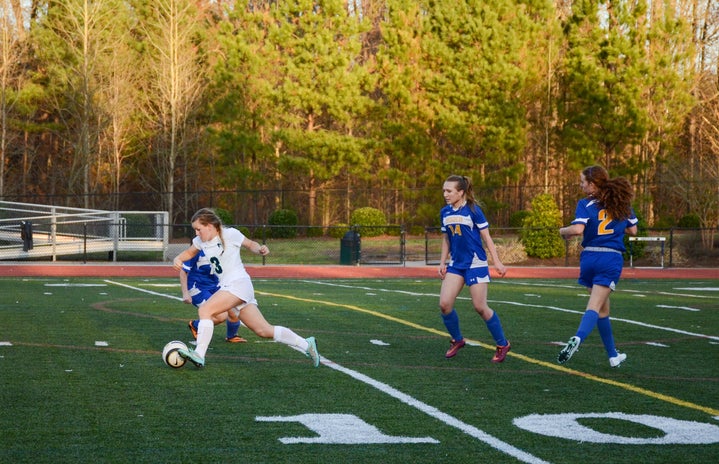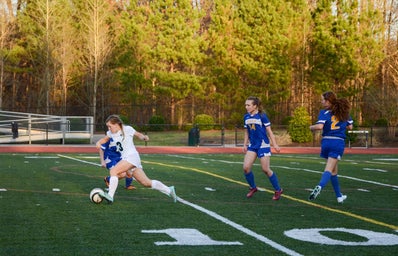Most people who have played sports have heard of the “C word.” The word that no one says out loud because they do not want to miss the big game. The word that could take a player out for a couple weeks and make her feel left out as she watches her team from the sideline. The word that is just as important as any physical injury yet, no one seems to think it is as serious as it is. That word is concussion.
A concussion is a “type of traumatic brain injury—or TBI—caused by a bump, blow, or jolt to the head or by a hit to the body that causes the head and brain to move rapidly back and forth. This sudden movement can cause the brain to bounce around or twist in the skull, creating chemical changes in the brain and sometimes stretching and damaging brain cells” (CDC).
Concussions can happen at any time or any place, but they are very common amongst athletes. They can be described as mild injuries; however, if not treated, they can have very serious lasting effects. Concussions can be accompanied with a variety of symptoms. These can include headache, light sensitivity, confusion, etc. They are graded as mild, moderate, and severe depending one certain concussion factors and recovery can last anywhere from days to months.

As most of the symptoms are internal, concussions can seem non-existent to people who are not experiencing them. Not everyone can see or experience what those symptoms truly feel like except the victim. Because of this, people can judge concussion victims and not take them seriously. It can be difficult for someone who is not experiencing the hardships to be able to relate to someone with a concussion. This is simply due to the fact that concussions should be talked about and those with them should be supported more.
It is important to step inside the shoes of someone who had suffered from a concussion.
At first they experience the initial hit, this may or may not be followed with immediate symptoms. These initial symptoms can often include headache, nausea, vomiting, dizziness and the injured person can even black out. In some cases, victims do not experience initial symptoms at all and they begin to feel worse within the days following the injury. After the initial hit and symptoms develop, it is very important to visit a doctor and to REST. Visiting the doctor will serve to confirm that an individual has a concussion and how to proceed towards recovery. The recovery process consists of extremely important rest, both mentally and physically. Like any muscle, it is important to allow the brain to heal after an injury. Recovery can include keeping away from digital screens, avoiding bright lights, taking naps throughout the day, etc. To an outsider this may seem like a sweet vacation; however, for the concussed, this process can be very frustrating and difficult. To someone with a head injury, every day and meaningless tasks can prove to be challenging. Getting out of bed can feel like riding on a roller-coaster, counting money can feel like calculus, and keeping a small conversation going can feel like giving an entire lecture. The brain is a muscle, and just as when the bicep is torn it cannot move at the same rate or lift the same weight, the brain cannot keep moving at the same pace while it is injured. A person who is concussed can have difficulty thinking and doing their daily mental functions at the same capacity. The injured needs to dedicate the appropriate time and attention to thier recovery so that the injury does not develop into lifelong complications.
It is important to realize that those injured with concussions are struggling and not relaxing during recovery. It is also important to provide support to those who are concussed in our communities. Those individuals are having a much harder time doing things that everyone takes for granted. It is crucial that the stigma on concussions be lifted so that those who need adequate time to let their brain rest can do so without feeling pressure from external forces. Athletic and non-athletic communities alike have brushed off concussions as very minor injuries for too long and it is now time to change the conversation to a supporting one.
Concussion journeys are different for everyone; therefore, it is important to not compare one journey to another and to provide support whenever able. It can make a world of difference to an individual suffering from a concussion to know that they have people on their side.
For more concussion support and recovery resources visit https://headwayfoundation.com/


